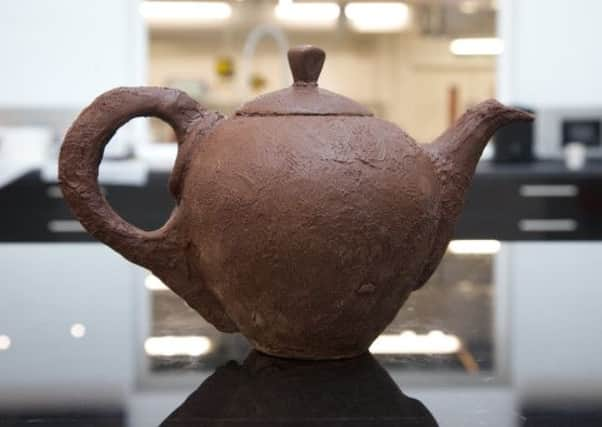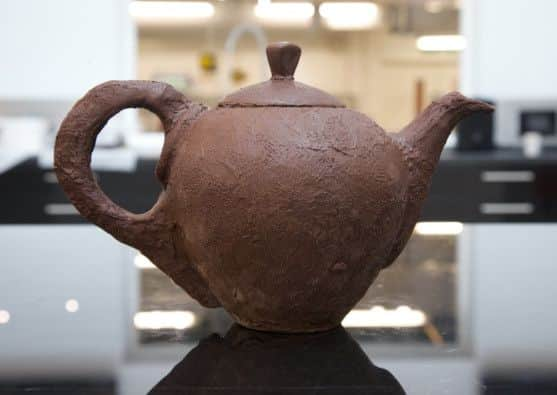Video: At last - a use for a chocolate teapot


Master chocolatier John Costello and his team from the Nestle Product Technology Centre (PTC), in York, were given the challenge of turning the familiar idiom on its head.
Their challenge, witnessed by BBC1’s The One Show, was to develop a teapot that could withstand boiling water enough to let the tea brew for two minutes before pouring.
Advertisement
Hide AdAdvertisement
Hide AdMr Costello enlisted some of the PTC’s top scientists and engineers to help in its development and solved the problem after a range of experiments.


He said they found that the secret was to use dark chocolate with 65% chocolate solids, due to its fat content, and build up a series of layers using a silicon mould. The whole process took around two-and-a-half hours.
“What we found is that when we first started to look at it, we’d probably end up with with chocolate tea,” Mr Costello said.
“Interestingly, if you pour the water in a certain way and you don’t stir inside, and you just let it settle, and let it brew like you would normally brew a cup of tea, and just let it stand for a little while - when you pour it, what happens is that the chocolate on the inside of the shell melts but doesn’t move anywhere.
Advertisement
Hide AdAdvertisement
Hide Ad“It stays where it is. So you get a very, very small amount of residue coming up to the top.”
Tasting the final brew, the team concluded it was a lovely cup of tea with a slight hint of chocolate.
The PTC in York is Nestle’s global centre for confectionery research and development and has 185 staff.
A spokesman said its scientists, engineers, nutritionists and confectioners represent 31 different nationalities.